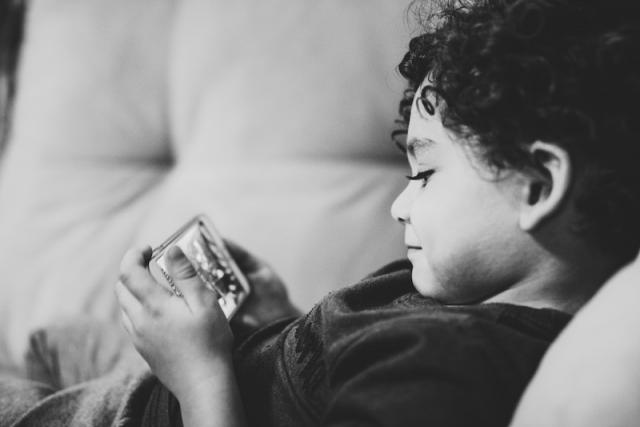Search the Community
Showing results for tags 'risk'.
-
Cars are becoming more and more homogenised. No, I'm not saying that cars are becoming identical, but as more and more cars become electrified and more EVs come to market, they will tend to feel the same. You see, consumers want cars that are quiet, spacious and convenient, and manufacturers are giving us just that. Some of us (not everyone looks at the list of standard safety features, sadly) want safer cars, too, so carmakers are bundling in more safety and driver assistance functions. So, most modern cars today are easy to drive and have numerous amenities that cater to drivers and passengers. But if you love driving, you would have surely noticed that driving a modern car doesn't deliver the same engagement that driving say, an older manual car does. Congestion, the enemy Can you drive a manual sports car today? Yes, enthusiasts do. But not me, because it's not rewarding to drive a manual car when my daily commute to and from the office happens during peak hours. The mere thought of repeatedly shifting from first to second and second to first, with some second to third thrown in from time to time, twice a day, is abhorrent. It is a chore. One might ask, "Well, why not go for late-night drives then?" After 8-10 hours at work, which also involves a fair amount of driving (test cars), I need to rest. A fatigued driver is a dangerous one. The writer gearing up for his first ride on his first bike Swopping four wheels for two So, how can a keen driver still feel engaged? Interestingly, one alternative is to ride a motorcycle. If you've never ridden a motorcycle before, imagine this. In a car, with an automatic transmission, you can pretty much just look out for traffic and steer. Only your right foot needs to work, and you're insulated and physically protected. On a motorcycle, you'll need all your wits and your senses (including whatever sixth sense or premonitions you can muster) to keep yourself safe. Looking out for other traffic is just beginning, because you need to even predict 'car and driver language' based on how a vehicle is being driven. And we haven't even gotten to operating a bike with a manual gearbox. An ignition that needs an actual key, analogue gauges, and yes, a 10,000rpm redline For the uninitiated, the clutch is a lever on the left handlebar and the shifter is a peg below your left foot. The accelerator is on right handlebar, which you twist towards you to accelerate. In front of it is the lever for the front brake and below your foot is the pedal for the rear brake. Your entire body is involved in riding a bike, and this is especially true when going around corners. And if sightlines in a car are important, they are everything when it comes to riding - where you look is where the bike will go. On a bike, looking the wrong way could end with you becoming a part of the scenery or taking an unwanted dip in a longkang. That's more than enough to keep me alert. Risky, but that's life in general If you're a biker, you'd undoubtedly have heard all the questions about risk and danger, especially given how vulnerable one is on two wheels. Is driving safer? In a sense, yes. But how much safer, actually? To me, riding a motorcycle is as risky as riding my bicycle on the road. So is crossing the road. Even walking on the pavement is dangerous, especially if there are cyclists are intent on zipping by you. I could as easily trip while walking as I could bump my knee on a table leg (it just happened again today). If I were to analyse every action I intended to take and anticipate its danger potential, I'd literally be stuck at home, which by the way is where most accidents occur. If you think most cars are becoming staid and uninteresting, I recommend taking a bike lesson (or two). Even if you're a die-hard manual sports car enthusiast, you may end up finding the experience to be an eye-opening, and perhaps addictive one.
- 1 comment
-
- riding
- motorcycles
- (and 8 more)
-
Feb 21, 2011 Oral sex linked to cancer risk WASHINGTON - US SCIENTISTS said on Sunday there is strong evidence linking oral sex to cancer, and urged more study of how human papillomaviruses may be to blame for a rise in oral cancer among white men. In the United States, oral cancer due to HPV infection is now more common than oral cancer from tobacco use, which remains the leading cause of such cancers in the rest of the world. Researchers have found a 225-per cent increase in oral cancer cases in the United States from 1974 to 2007, mainly among white men, said Maura Gillison of Ohio State University. 'When you compare people who have an oral infection or not... the single greatest factor is the number of partners on whom the person has performed oral sex,' said Ms Gillison, who has been researching HPV and cancer for 15 years. 'When the number of partners increases, the risk increases,' she told reporters at the American Association for the Advancement of Science meeting in Washington. Previous studies have suggested that people who have performed oral sex on six or more partners over a lifetime face an eight-fold higher risk of acquiring HPV-related head or neck cancer than those with fewer than six partners, she said. But even though the link between HPV and cervical cancer has been well known for many years, and vaccines now exist to provide some protection, much study remains to be done to confirm observational links and establish causes, Ms Gillison said. 'The rise in oral cancer in the US is predominantly among young white males and we do not know the answer as to why.' -- AFP Be careful wif the tongue lashings guys.
-
Singaporean children at higher risk of speech and language delays due to excessive screen time https://www.asiaone.com/digital/singaporean-children-higher-risk-speech-and-language-delays-due-excessive-screen-time?xtor=EREC-16-4%5BEmarsys_Newsletter%5D-20190724&extid=6934d0cfb7b252f1ae9f0dbddf5ff88ca8637e77 In today’s increasingly digitised landscape, it’s nigh-impossible to escape the harsh white light emanating from the screens of electronic displays. It’s harder than ever before for the kids of today not to get exposed to internet-connected gizmos from a tender young age. Unless they’re living off-grid, that is. It’s something that speech and language therapist Ng Jia Yue expressed concerns about with AsiaOne. A senior specialist at SBCC Child Development Centre, the therapist is familiar with how increased screen time can contribute to behavioural problems in young children — delays in the development of speech and language, in particular. “Language delay refers to the difficulties a child has in understanding what others say and/or communicating with others,” she explained. Speech delay, on the other hand, refers to the difficulties a child has in producing speech sounds accurately, making the child difficult to understand. According to Ng, symptoms include (and are not limited to) being unable to simply convey their needs, unable to talk by two-years-old, having poor pronunciation of words, and with a preference for gestures instead of speech. “Some children may also show behavioural problems as they are frustrated when they are unable to express themselves properly,” she mentioned. With Singapore's massive internet penetration and mobile app usage rates, should parents here pay more attention to the time spent by their kids with devices? The answer is a resounding yes, obviously. Read on below to see what Ng has to say about weaning children off screens. How are these delays linked to increased screen time? A study has revealed that for children between ages six and 24 months, each 30-minute increase in handheld screen time is linked to a 49 per cent increased risk of developing expressive speech delays. This means that the ability to communicate using words and sentences may be delayed. Particularly within Singapore, a large proportion of Singaporean children are using screen devices and screen time is on the rise, from 60 to 120 minutes among children between the ages of six months and 24 months. This is significantly higher than the World Health Organisation’s recommended guidelines. Studies suggest that excessive screen time is linked to speech and language delays because face-to-face social interaction is vital to the development of language and other skills. Spending time on the screen may lead to less time for play and social interaction. So, there are fewer opportunities for developing important foundational language skills such as turn-taking. Screen-based interaction is not an effective substitute for interpersonal interaction and stifles the child’s ability to develop communication skills, pick up vocabulary, and gain confidence in expressing themselves. Do late talkers eventually catch up with their peers? Between 70 to 80 per cent of late talkers seem to catch up with peers by school-going age. These children are sometimes referred to as "late bloomers" because they appear to catch up with peers eventually. However, research has shown that these children may still continue to have difficulties in some language and literacy skills (such as reading, writing and listening comprehension), some skills related to language (such as social skills, planning and organising information, perspective taking) and how the brain processes speech. There are also the 20 to 30 per cent of late talkers who do not grow out of their language delay. Hence, if a language delay is suspected, it is important to seek the advice of a speech-language therapist to determine if intervention is necessary. How should screen time be handled? Parents should limit their child’s screen time based on their needs and ensure that screen time does not affect their sleep and daily activities. The World Health Organisation recommends controlled screen time for children under five. Namely: Watching screened devices is not recommended for children aged one-year-old and below. No more than one hour of screen time per day, for children aged two to four years old. Any screen time given to children should also be curated and supervised by parents. Parents can also help build on what they have watched by discussing what their child has watched, such as discussing what happened in the video and helping children to relate it to real life. However, more time should still be allocated for children to be engaged in active play or interactions. What are some methods parents can use to nurture their children’s speech and language development? Parents should always try to engage with their children through play, toys, verbal communication or conversations, reading books, and hands-on activities instead of electronic gadgets. This personal interaction will significantly help develop the child’s cognitive and language skills, as well as develop sensorimotor and visual-motor skills. As the child gets older, it’s also important to sustain the interaction and communication by sharing in the child’s interests and engaging with the child through their interests. This helps to build the child’s confidence in expressing themselves and communicating with others. [email protected]
-
looking at the many recent launches for Thailand property. https://www.icompareloan.com/resources/things-need-know-buying-thailand-property/ With so many coup and disruptions from external factors. Is it reasonable to expect that it can only go up from here onwards? I notice the condo sizes is clearly smaller that our shoebox apt. Except that it does not have a bomb shelter. And that sort of remove the dead space. There is no property taxes as well and it comes with a guaranteed yield of 6% per annum for 3 years. Seems quite good IF the thai baht rises after the 3 years of guarantee yield. http://www.homenayoo.com/the-excel-hideaway-sukhumvit-50/ interested in this with a view of the longkang
- 25 replies
-
- 3
-

-
- rental income
- yield
- (and 4 more)
-
Hi all, Does anyone have any experience with rim protectors, something like RimPro-Tec, and do they work? I am wondering if they can really protect larger rims with low profile tyres, or whether the protection they offer is insignificant. https://www.sgcarmart.com/products/overview.php?ID=6399 Thanks in advance. Naresh.
- 2 replies
-
- rim
- rimpro-tec
- (and 5 more)
-
In the last two years, degree holders here have found themselves the most vulnerable to losing their jobs, among all qualification groups. Since 2011, they have also made up a higher proportion of residents made redundant than among all resident workers. Experts suggested three reasons for this - jobs lost in restructuring tending to be held by graduates, greater demand for non-academic skills, and substitution by skilled foreign labour. "As more graduates become available, it brings about more friction in the job-matching process," said UniSIM economist Randolph Tan. "Many graduates think that getting a degree is the pinnacle of achievement, but what they don't realise is that the workplace demands much more of them." Source: http://mypaper.sg/top-stories/degree-holders-face-greatest-risk-losing-jobs-20140526 http://www.youtube.com/watch?v=LTRA-5Q80Yc
- 429 replies
-
- degree holders
- losing jobs
-
(and 7 more)
Tagged with:
-
Business Times - 19 Oct 2007 Family support system for old folks at risk Middle-aged people stretched financially, sociologist warns SINGAPORE'S emphasis on family members as a pillar of support for older people is in danger of collapse, an academic here warned yesterday. Angelique Chan, a sociologist at the National University of Singapore, said: 'I think the whole emphasis on families supporting older adults ... the system is going to break. 'You're already seeing the cracks. You've got middle-aged people who are just stretched to the limit financially and emotionally caring for their younger aged children and their older parents. 'It's very hard to care for older parents - there's a lot of psychological issues involved caring for someone who used to take care of you, and health care is much more expensive now.' She made the remarks during a question-and-answer session at the Singapore Economic Policy Conference held at Four Seasons Hotel yesterday. According to her, the state will have to do 'a lot more' to address the social impact of population ageing. Her presentation to an audience that included members of the Central Provident Fund Board, public and private sector economists and other academics painted a bleak picture of Singapore's demographic trends. 'Singapore's demographic window of opportunity will close in the next 10 to 15 years,' she said. The country's total fertility rate - a measure of the average number of children born for every woman in the population over her lifetime - has fallen sharply, from six in 1965 to 1.26 in 2006, she said. In fact, 'since 1975, the population has not been replacing itself.' Her team's research suggests that without migration the population will start shrinking from around 2020, and so will the labour force. Worse still, many demographers now believe that 'once the total fertility rate goes below 1.5 it is near impossible to raise it back up to the replacement rate' of about 2.1, she said. She thinks it unlikely the population will be able to replace itself. With the rate of non-marriage and divorce on the rise, 'it just doesn't look so good,' she said. 'Immigration is the only way.' No developed country has a fertility rate that reaches or exceeds the replacement rate, she said. Among developed countries, France has the highest fertility rate, at 1.8. In South Korea and Hong Kong, the fertility rates are even lower than in Singapore, at 1.19 and 0.94 respectively. With her colleagues, she is studying the reasons why Singaporeans are reluctant to have children. 'What we found was that young adults in Singapore still have a very idealistic impression of parenting and marriage,' she said. 'They've got really high expectations about the kind of parenting they have to provide, but they're saying no to the traditional social support systems that used to help in this process.'
-
Health is important. All MCF members do take care Women who work nights face higher cancer risk: study http://www.asiaone.com/health/women-who-work-nights-face-higher-cancer-risk-study?xtor=EREC-16-4[Emarsys_Newsletter]-20180109&extid=6934d0cfb7b252f1ae9f0dbddf5ff88ca8637e77 Women who regularly work the night shift in Europe and North America may face a 19 per cent higher risk of cancer than those who work during the day, said a study Monday. These heightened risks were not apparent among female night-shift workers in Australia and Asia, said the meta-analysis in the journal Cancer Epidemiology, Biomarkers and Prevention. "Our study indicates that night shift work serves as a risk factor for common cancers in women," said study author Xuelei Ma, an oncologist at the West China Medical Center of Sichuan University in Chengdu, China. "We were surprised to see the association between night shift work and breast cancer risk only among women in North America and Europe," he added. "It is possible that women in these locations have higher sex hormone levels, which have been positively associated with hormone-related cancers such as breast cancer." The review incorporated 61 previously published studies on the topic, spanning 3.9 million participants from North America, Europe, Australia, and Asia and more than 110,000 cancers. One drawback to the study was that the different definitions of long-term night shift work -- with some of the papers describing it as "working during the night" and others saying "working at least three nights per month." But the association was stark. While overall long-term night shift work increased the risk of cancer by 19 per cent, the risk of certain cancers were even higher. Female night shift workers saw a 41 per cent increased risk of skin cancer and a 32 per cent higher risk of breast cancer. The risk of gastrointestinal cancer was 18 per cent higher than in women who did not perform long-term night shift work. A subset of female nurses was also highlighted in the study, which showed "those who worked the night shift had an increased risk of breast (58 per cent), gastrointestinal (35 per cent), and lung cancer (28 per cent) compared with those that did not work night shifts." Ma noted it was possible that nurses might be more likely to undergo screening, since they work in the medical profession. "Another possible explanation for the increased cancer risk in this population may relate to the job requirements of night shift nursing, such as more intensive shifts." When it came specifically to breast cancer, the risk rose by 3.3 per cent for every five years of night shift work, said the study. Previous research has shown that nighttime work can disrupt the body's circadian rhythms, causing hormonal and metabolic changes that may boost the risk of cancer, diabetes, obesity and depression. "The results of this research suggest the need for health protection programs for long-term female night shift workers," said Ma. "Long-term night shift workers should have regular physical examinations and cancer screenings."
-
http://www.therichest.com/luxury/auto/ranking-the-top-15-cars-with-the-highest-death-rates/ civic..and Hyundai Accent
- 9 replies
-
- 5
-

-
- car dead korean
- accident die
-
(and 1 more)
Tagged with:
-
Hi MCF members! SGX has an upcoming free admission event on Saturday 26 November, 10 AM - 1 PM SGX Market Outlook 2017: Finding Income and Managing Risk Forum More info: http://notice.shareinvestor.com/email/20161126_sgx/index.html This is an interesting event as the current financial market is highly volatile. Many of your may want to hear and learn the various ways to manage risk and earn a decent income from investment in 2017. Click here to register. First 100 to arrive early for registration with receive a mystery gift!
-
What it means to be a successful investor in 2016 can be summed up in four words: bigger gambles, lower returns. Thanks to rock-bottom interest rates in the U.S., negative rates in other parts of the world, and lackluster growth, investors are becoming increasingly creative—and embracing increasing risk—to bolster their performances. To even come close these days to what is considered a reasonably strong return of 7.5%, pension funds and other large endowments are reaching ever further into riskier investments: adding big dollops of global stocks, real estate and private-equity investments to the once-standard investment of high-grade bonds. Two decades ago, it was possible to make that kind of return just by buying and holding investment-grade bonds, according to new research. In 1995, a portfolio made up wholly of bonds would return 7.5% a year with a likelihood that returns could vary by about 6%, according to research by Callan Associates Inc., which advises large investors. To make a 7.5% return in 2015, Callan found, investors needed to spread money across risky assets, shrinking bonds to just 12% of the portfolio. Private equity and stocks needed to take up some three-quarters of the entire investment pool. But with the added risk, returns could vary by more than 17%. Nominal returns were used for the projections, but substituting in assumptions about real returns, adjusted for inflation, would have produced similar findings, said Jay Kloepfer, Callan’s head of capital markets research. The amplified bets carry potential pitfalls and heftier management fees. Global stocks and private equity represent among the riskiest bets investors can make today, Mr. Kloepfer said. “Stocks are just ownership, and they can go to zero. Private equity can also go to zero,” said Mr. Kloepfer, noting bonds will almost always pay back what was borrowed, plus a coupon. “The perverse result is you need more of that to get the extra oomph.” Bonds historically produced a source of safe, good-enough streams of profit that allowed long-term, risk-averse investors to hit annual targets. The era of low rates has all but erased that buffer. The absence of a few extra percentage points of yield means investors must now compensate by embracing unsafe bets that could strike big—or flop. The Callan report highlights how risky an endeavor that is. “Not nearly enough attention has been paid to the toll these low rates—and now negative rates—are taking on the ability of investors to save and plan for the future,” BlackRock Inc. Chief Executive Officer Laurence Fink said in a recent letter to shareholders. Some investors such as David Villa of the $100 billion State of Wisconsin Investment Board argue that at near zero, rates are artificially suppressed, and it’s creating bubbles in asset prices. Advertisement “We know the Federal Reserve is trying to trick us—we’re dealing with distortions,” said Mr. Villa, referring to how low rates have historically encouraged investors to take on more risk. “They want us to invest in building new things, but what [investors are] doing is trading existing assets at higher and higher prices.” Many large investors aren’t gambling that big—and their returns are lagging well behind internal targets. The nation’s largest public pension fund, the California Public Employees’ Retirement System, has one-fifth of its assets in bonds and is down 1.3% since July 1, according to public documents. The system, known by its abbreviation Calpers, also has 53.1% of its assets in stocks, 9% in real estate and 9.4% in private equity. In 2015, Calpers posted a return of 2.4%, below its target rate of 7.5%. The risk dilemma for investors has real-life consequences. Retirement plans, including Calpers and the New York State Common Retirement Fund, are lowering what they predict they can earn on their investments, a move that means workers and cities likely face higher contributions and taxes. For insurers, lower bond returns mean life-insurance policyholders pay more for coverage. It wasn’t always this complex. Two decades ago big investors had their money sitting primarily in U.S. stocks and bonds. Inflation was 4% and yields on investment-grade bonds roared upward at double that rate. After the 2008 financial crisis, central bankers pushed down rates to stimulate growth, dropping real returns close to zero for higher-quality debt. Government bonds in Japan and Europe now have nominal yields below zero. Cheaper borrowing costs generally spur new investments from companies or consumers. But instead, global production is flat or declining, and consumers face stagnant wages that crimp their ability to spend. That has pushed down the “neutral rate,” or the real rate of interest that neither accelerates nor decelerates the economy. It is now basically flat, compared with 4% or 5% in prior decades, said Roberto Perli, a partner at Cornerstone Macro, a macroeconomic research firm. While some investors are loading up on traditionally risky assets as a way of hitting ambitious targets, others—concerned about a slowing global economy—are wrestling with how to reduce risk without piling into bonds. ‘I can’t just reach out and grab a high-quality bond that’s yielding 6% or 7%. They don’t exist.’ —Tom Girard, New York Life Insurance Co. The nation’s second-largest public pension plan, the California State Teachers’ Retirement System, has shifted a significant amount of money away from some stocks and bonds to protect against a downturn. It moved assets into U.S. Treasurys and so-called liquid-alternative funds, which mimic hedge-fund strategies. Calstrs, as the pension is called, reported gains of 1.5% during a choppy 2015, with returns on its fixed-income investments up just 0.6%. “We used to say bonds would be that risk protection,” saidChristopher Ailman, chief investment officer at Calstrs. “Now we can’t.” For instance, in 2002, safer corporate bonds returned about 11%, while U.S. stocks fell roughly 22%, according to a Segal Rogerscasey analysis of the Russell 3000 stock index, plus historical bond returns tracked by Barclays and Citigroup. But during the 2008 crisis, stocks fell more than 37% and higher-quality bonds declined 3.3%, according to the Segal Rogerscasey analysis. More recently, those types of bonds fell during stock-market tumbles in August and December, Segal Rogerscasey said. Others are willing to accept lower returns for now and wait for better days ahead. The Wisconsin pension sold off trophy real-estate and private-equity holdings when it believed prices were high over the past two years and switched into publicly traded stocks and bonds that can be sold quickly, Mr. Villa said. Not all investors have the luxury of avoiding bonds. New York Life Insurance Co., which has about 89% of its $220 billion in assets in bonds, once could find what it needed among well-known, plain-vanilla securities. Insurers typically have large holdings of high-quality government and corporate bonds, because of state-regulatory guidelines encouraging safe investments. But now the insurer has to scour the globe for suitable bets in assets in which it had never before dabbled—such as complex bond deals involving railcar leases, shipping containers and legal-settlement payouts. The insurer has “looked under rocks, far and wide” to find suitable fixed-income investments, said Tom Girard, who leads New York Life’s fixed-income team. “I can’t just reach out and grab a high-quality bond that’s yielding 6% or 7%.” he added. “They don’t exist.”
-
Please take note, Do Not Feed monkeys http://mothership.sg/2015/05/do-not-feed-the-monkeys-this-is-how-a-s500-fine-by-nparks-looks-like/
-
After a recent spate of engine fires, Ferrari has officially issued a recall of the 458 Italia. According to the automaker, an adhesive used to attach a heat shield under the rear fender can ignite under high temperatures, leading to a larger fire in the engine bay. We've seen at least four cases on the internet of flaming 458s like this one, and while we can't say for certain, it would seem this adhesive is the likely cause. Ferrari has designed a new heat shield that attaches with rivets, negating the need for the adhesive. Naturally, 458 owners are urged to call a dealer to schedule an appointment for the free fix.
-
Our family love Japanese Food, we will think twice after seeing this Teppanyaki fire hazard hurting customer sitting in front of the flying pan http://www.youtube.com/watch?v=PK979fWA0qs
- 46 replies
-
- 3
-

-
- teppanyaki risk
- risk
-
(and 2 more)
Tagged with:
-
http://youtu.be/RWDE2baGX2c
-
One of Saudi Arabia's top conservative clerics has said women who drive risk damaging their ovaries and bearing children with clinical problems, countering activists who are trying to end the Islamic kingdom's male-only driving rules. A campaign calling for women to defy the ban in a protest drive on October 26 has spread rapidly online over the past week and gained support from some prominent women activists. On Sunday the campaign's website was blocked inside the kingdom. As one of the 21 members of the Senior Council of Scholars, Sheikh Saleh al-Lohaidan can write fatwas, or religious edicts, advise the government and has a large following among other influential conservatives. His comments have in the past played into debates in Saudi society and he has been a vocal opponent of tentative reforms to increase freedoms for women by King Abdullah, who sacked him as head of a top judiciary council in 2009. In an interview published on Friday on the website sabq.org, he said women aiming to overturn the ban on driving should put "reason ahead of their hearts, emotions and passions." Although the council does not set Saudi policy, which is ultimately decided by King Abdullah, it can slow government action in a country where the ruling al-Saud family derives much of its legitimacy from the clerical elite. It is unclear whether Lohaidan's strong endorsement of the ban is shared by other members of the council, but his comments demonstrate how entrenched the opposition is to women driving among some conservative Saudis. "If a woman drives a car, not out of pure necessity, that could have negative physiological impacts as functional and physiological medical studies show that it automatically affects the ovaries and pushes the pelvis upwards," he told Sabq. "That is why we find those who regularly drive have children with clinical problems of varying degrees," he said. A biography on his website does not list any background in medicine and he did not cite any studies to back up his claims. U.S. diplomats in a 2009 Riyadh embassy cable released by WikiLeaks, described Lohaidan as "broadly viewed as an obstacle to reform" and said that his "ill-considered remarks embarrassed the kingdom on more than one occasion." The ban on women driving is not backed by a specific law, but only men are granted driving licenses. Women can be fined for driving without a license but have also been detained and put on trial in the past on charges of political protest. Sheikh Abdulatif Al al-Sheikh, the head of the morality police, told Reuters a week ago that there was no text in the documents making up sharia law which bars women from driving. Abdullah has never addressed the issue of driving. Source: http://www.straitstimes.com/breaking-news/...varies-20130929
-
Supercar owners who let valets handle their vehicles do so at their own risk, motor insurers confirmed yesterday. Coverage for such cars may protect only the drivers named in the policy, such as the Ferrari owner whose vehicle was allegedly taken for a five-minute joyride by two valets from Resorts World Sentosa (RWS) last Tuesday. Such restrictions are included in policies for "highly valuable cars", said Mr Derek Teo, president of the General Insurance Association of Singapore. This is because of the high value of such cars and the sum insured, and the fact that they are usually "high powered". Source: http://www.straitstimes.com/breaking-news/...n-risk-20130504
-
Eating Western-style fast food can increase one's risk of developing diabetes and dying from heart disease, a local study has found. The research, a first that looks at the impact of fast food on Asians, found that those who eat fast food more than four times a week had an 80 per cent higher risk of dying of a heart disease. Those who eat fast food more than twice a week are also 30 per cent more likely to develop type 2 diabetes. Western-style fast food is categorised in this study as cheeseburgers or hamburgers, pizzas, hot dogs, french fries, ham sandwiches, and deep-fried chicken. Source: http://www.straitstimes.com/BreakingNews/S...ory_821937.html
-
even if no pay cut?
-
It looks like General Motors is not the only car manufacturer that is affected by massive recall in the US recently. The National Highway Traffic Safety Administration announced that BMW is recalling some 2,642 units of the X5 and X6 SUVs fitted with diesel engines due to an engine bay fire risk. The affected vehicles are manufactured between 20 April 2012 and 29 May 2012. According to the official statement by BMW, due to a machining error of the steering gear surface, power steering fluid may leak. Leaking power steering fluid can spray onto hot exhaust parts, increasing the risk of an engine compartment fire. The issue was uncovered during testing at the BMW plant in Spartanburg and the luxury car maker is unaware of any incidents caused by the defect. The driver is still able to maintain steering control although the power steering assist is faulty. However, a higher degree of effort is required. A change in steering effort could increase the likelihood of an accident under certain emergency conditions. The recall is expected to begin in July, and BMW dealers will inspect and replace the steering gear on affected vehicles as necessary. The recall by GM (on the Cruze model) and BMW reminds me of a conversation that I had with a local Hyundai salesman recently. He mentioned that if a model is sold in the US, one can be assured that it is quite safe as the US government is very serious about vehicular safety. I think there is some truth in it.
-
[shakehead] Feels sorry for the innocent child... From STOMP: http://singaporeseen.stomp.com.sg/stomp/sg...t_having_3.html Posted on 19 May 2012 Family scolds passerby who informs them that riding a bike with 3 people is illegall A family was spotted with three people on a motorbike. They also scolded a passerby who informed them that it was illegal to have three people on a bike in Singapore. Said STOMPer Beckham: "Picture says it all... on Singapore road. "Family gets bold."
-
when you split up, dont ...... Bitter dentist pulls out all of her ex-boyfriend's teeth Monday, Apr 30, 2012 The Korea Herald/Asia News Network When 45-year-old Marek Olszewski booked an appointment with his dentist ex-girlfriend Anna Mackowiak, he thought she would put aside the fact that he dumped her and treat him like any other patient. He was gravely mistaken. Mackowiak now faces up to 3 years in jail for pulling out every single one of Olszewski's teeth, the Daily Mail reported Sunday. The vengeful 34-year-old dentist put Olszewski to sleep with a heavy dose of anesthetics and thoroughly emptied his mouth. She then strapped Olszewski's jaw with bandages, and told him he needed to see a specialist. "I didn't have any reason to doubt her, I mean I thought she was a professional," said Olszewski. But when he got home, he found out he was completely tooth-free. Olszewski said he was going to have to "pay a fortune" to get implants. Adding insult to injury, his new girlfriend left him because she "can't be with a man without teeth." Mackowiak said she tried to treat her Olszewski without letting her emotions get the better of her. "But when I saw him lying there I just thought, 'What a b******'," said Mackowiak. Mackowiak is being investigated for medical malpractice and abusing the trust of a patient.

















